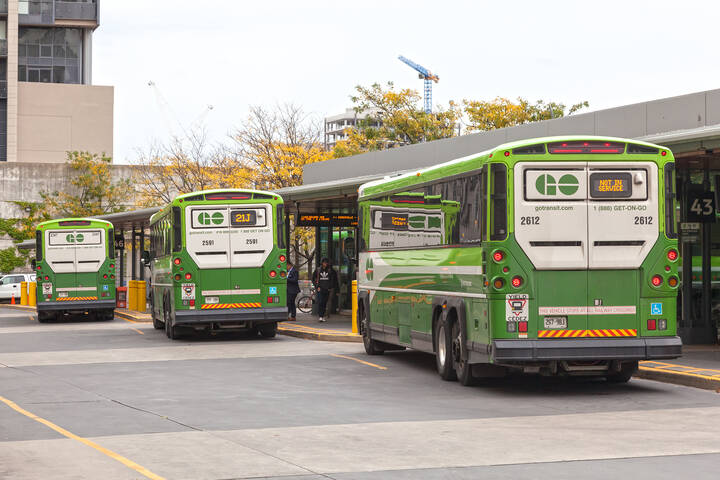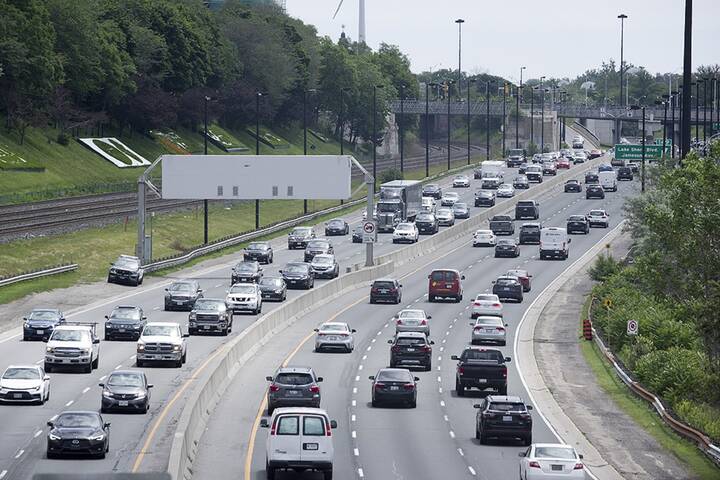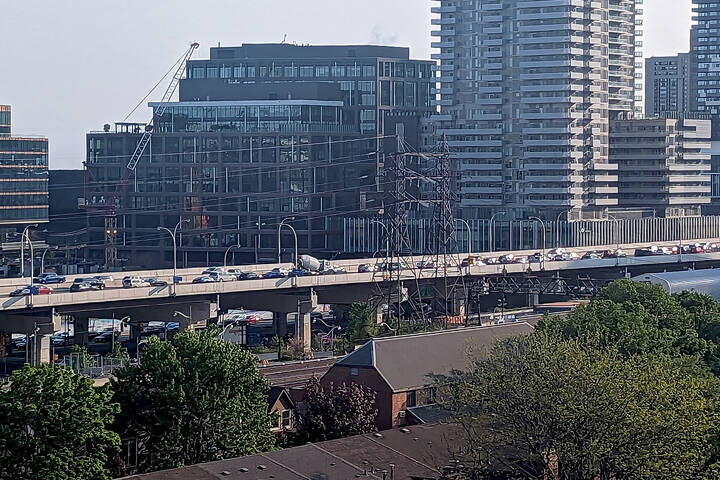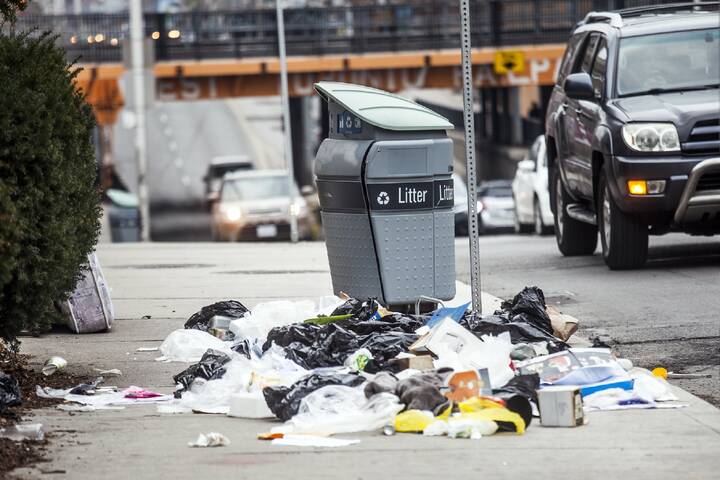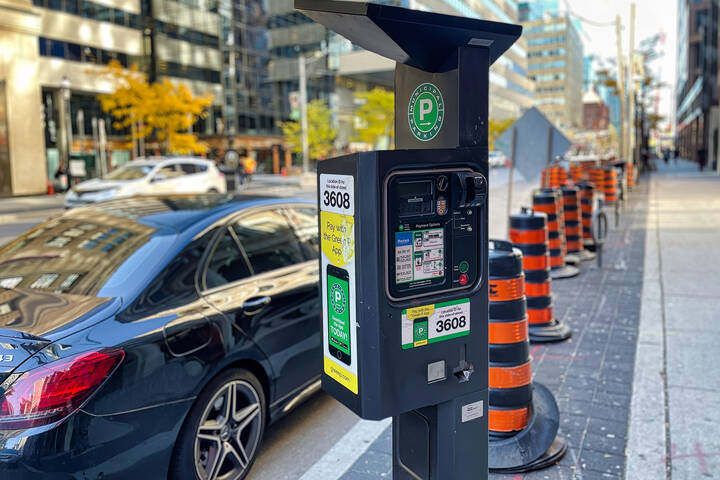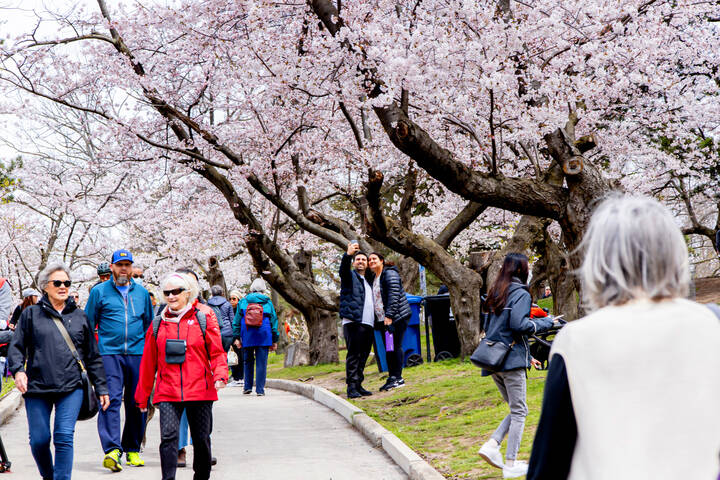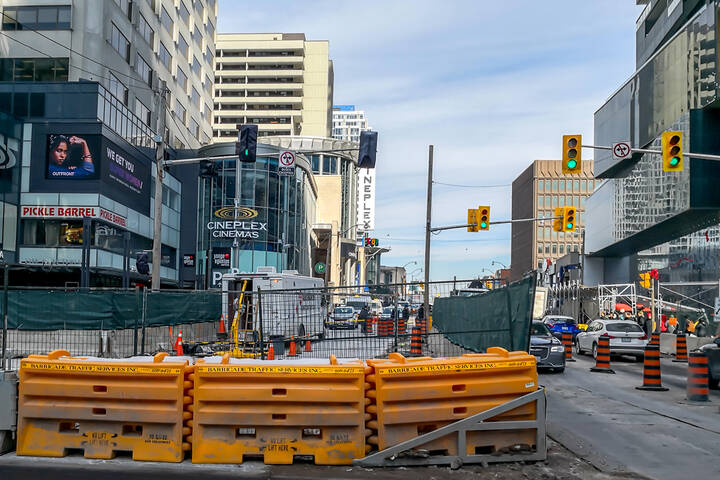
Death by Smog
Look out your window towards the setting sun and the skyline is blanketed in an orange and purple haze.
Take a brisk walk early on a sweltering morning this week, and one deep inhalation might include enough particulate to induce a coughing fit or asthma attack. True, you may have walked by a construction site, but you may also be suffering from the inevitable summer smog.
Some of you may remember the smog alert this past winter. In February. Well, summer's here and the real fun can begin. Environment Canada did some some fancy research that links premature death to pollution and extreme weather (shocking, I know) and indicates 'at risk people' (the usual - the old, the young, those with some pre-existing condition that makes them sensitive) suffer more significantly.
And the rest of us? Well, right now we're robust enough to suffer in silence, but there is sufficient Health and Air Quality research with enough heavily scientific results and studies to scare you into wearing an oxygen mask. And, in case you're wondering, there are also plenty of health concerns related to air quality.
So what's a healthy urbanite to do? Well, Health Canada recommends:
To reduce your exposure to smog and its potential health effects:
* Check the Air Quality index in your community, especially during "smog season" from April to September. Tailor your activities accordingly.
* Avoid or reduce strenuous outdoor activities when smog levels are high, especially during the afternoon when ground-level ozone reaches its peak. Choose indoor activities instead.
* Avoid or reduce exercising near areas of heavy traffic, especially during rush hour.
* If you have a heart or lung condition, talk to your health care professional about additional ways to protect your health when smog levels are high.
To help reduce the overall levels of smog in the air:
* When possible, use public transportation instead of your car. You could also walk or ride your bicycle, as long as smog levels are not too high.
* Look for alternatives to gas-powered machines and vehicles. Try a rowboat or sailboat instead of a motorboat or a push-type lawnmower instead of one that runs on gasoline.
* Consider fuel efficiency when you buy a vehicle. Keep all vehicles well maintained.
* Reduce energy use in your home. Learn more about alternative energy resources.
* Do not burn leaves, branches or other yard wastes.
* Consider joining a citizens' committee to advocate for cleaner air in your community.
* Spend time talking with your children about the importance of a sustainable lifestyle.
Or you could spare a moment for those canvassers for Greenpeace and put your money where your primary breathing orifice is. The Sierra Club could use the money you save by taking transit instead of driving that SUV, too.
Latest Videos
Latest Videos
Join the conversation Load comments
